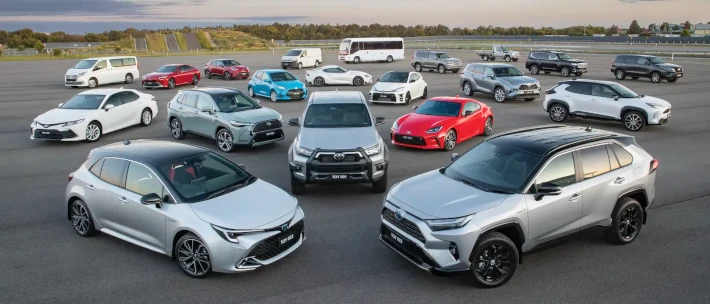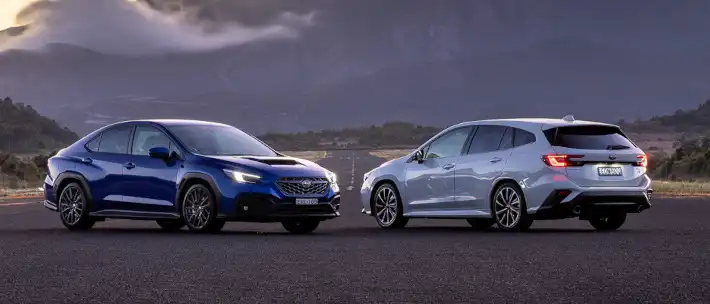While the first few years of electric vehicles were accompanied by sky-high prices, a wider range of more affordable all-electric hatches, sedans and SUVs are giving Australians some serious food for thought.
Before making the switch, though, it’s important to outline some of the ownership costs of an electric vehicle, namely finding out exactly how much it costs to charge an EV both at your home, and while using a fast charger out in public.
Get in touch with one of our Car Buying Specialists today.
Request a quoteLet’s take a closer look and find out the savings on offer when it comes to charging an EV over-filling up a tank of fuel.
How Much Does it Cost to Charge an EV?
There are a few things that determine just how much it will cost to charge your electric vehicle; these include:
-
The size of the battery
-
Whether you’re charging at home or in public
-
The speed (or level) of the charger you’re using
-
The time of day you’re charging
-
How much charge is left in the battery pack
-
Any charging subscriptions you have from the vehicle’s purchase
How Much Does it Cost to Charge an Electric Vehicle at a Public Charging Station?
Charging your electric vehicle at a public fast-charging station is the quickest way to top up your battery.
Charging stations are expensive pieces of infrastructure, though, which means that public chargers require you to pay for each charge, though there are a number of free chargers that offer slower speeds for no fee.
Using the average price of using a 50kW DC charging station - otherwise known as a level 2 charger - for example, the cost of charging a 64kWh battery pack works out as follows.
Public Fast-Charging Cost = 40c per kWh x 50kWh = $20.00
Public Fast-Charging Cost = 40c per kWh x 64kWh = $25.60
Public Fast-Charging Cost = 40c per kWh x 80kWh = $32.00
Public Fast-Charging Cost = 40c per kWh x 100kWh = $40.00
If you’re looking for the fastest-possible charging speeds, costs can reach up to 60c per kWh, which means the cost of a level 3 ultra-fast charger is slightly more expensive, as you can see below.
-
Ultra-fast Public Charging Cost - 60c per kWh x 50kWh battery = $30.00
-
Ultra-fast Public Charging Cost - 60c per kWh x 64kWh battery = $38.40
-
Ultra-fast Public Charging Cost - 60c per kWh x 80kWh battery = $48.00
-
Ultra-fast Public Charging Cost - 60c per kWh x 100kWh battery = $60.00
It’s worth noting that there is a growing number of DC fast chargers that can be accessed by the public free of charge, though charging speeds are often capped at between 25-50kW and can be difficult to access during busy times.
How Much Does it Cost to Charge an Electric Vehicle at Home?
To find out how much it costs to charge your electric vehicle at home, you’ll have to look at the rate you’re paying per kilowatt-hour to your energy provider.
These rates change between States and Territories, so we’ll map out the current average electricity price per kilowatt-hour across Australia below by adding the rates below together and multiplying by eight.
-
ACT = 26.58c/kWh
-
NSW = 28.70c/kWh
-
QLD = 25.73c/kWh
-
VIC = 22.88c/kWh
-
WA = 30.06c/kWh
-
SA = 37.54c/kWh
-
TAS = 26.99c/kWh
-
NT = 27.37c/kWh
Australian Average Electricity Prices per kWh in 2023 = 28.23 cents per kWh
As you can see, the price of charging your electric vehicle at home is cheaper, depending on where in Australia you live.
As a general guide, let’s use the Australian average to find out how much it costs to charge an EV at home, just keep in mind that your home charging costs might be above or below what we’ve listed.
-
Home Charging Cost - 28.23c per kWh x 50kWh battery pack = $14.11
-
Home Charging Cost -28.23c per kWh x 64kWh battery pack = $18.06
-
Home Charging Cost = 28.23c per kWh x 80kWh battery pack = $22.58
-
Home Charging Cost = 28.23c per kWh x 100kWh battery pack = $28.23
How to Calculate the Cost of Charging Your Electric Vehicle?
The simplest way of finding out how much it costs to charge your electric vehicle is to look at the size of the EV’s battery pack, which is measured in kilowatt-hours (kWh), and multiply this by the rate you’re paying for the electricity.
-
EV Charging Cost = size of battery pack (kWh) x electricity rate ($0.xx per kWh)
How Much Does an Electric Car Cost Per 100km of Driving?
Running costs per 100km of driving for your EV depends on its energy consumption figure, which is basically the electric equivalent of the traditional litres-per-100km measurement we use for petrol and diesel vehicles.
An average energy consumption figure for the most recent range of EVs here in Australia sits at around 20kWh per 100km, though more energy-efficient EVs can return figures around 15kWh/100km.
To find out the cost of driving an EV per 100km, we’ll use our average electric prices for those charging at home, as well as the costs per 100km if you’re using a DC fast charger and ultra-fast charger.
-
Cost per 100km = 28.23c per kWh x 15kWh = $4.23 per 100km (home charging rates)
-
Cost per 100km = 40c per kWh x 15kWh = $6.00 per 100km (DC fast charging rates)
-
Cost per 100km = 60c per kWh x 15kWh = $9.00 per 100km (DC ultra-fast charging rates)
What is the Cheapest Way to Charge an EV?
The cheapest means of charging an electric vehicle is to either find a public charger that is free to use, those that have solar panels and/or battery capacity at home, or owners that are charging the vehicle during off-peak hours when electricity prices are lowest.
As we’ve seen, the price of electricity can jump dramatically during peak hours, so setting up a timer that can charge your EV at home during these off-peak hours is the best way to keep charging costs as cheap as possible.
How Long Does it Take to Charge an EV in Australia?
The question of how long it takes to charge your EV depends on a few things, these include:
-
The size of the battery pack
-
The speed of the charger
-
Amount of charge in the pack when starting
-
Outside temperatures
Batteries charge fastest between 10-80 per cent, which means the last 20 per cent of a charge can take a considerable amount of time.
If we use an electric vehicle with a 64kWh battery as a reference, you can see how long it takes to charge an EV at home using a standard outlet, an AC wall box charger, a public fast charger and an ultra-fast DC charger.
-
64kWh battery at home: 35 hours
-
64kWh battery at home with 7kW wall box: 10 hours
-
64kWh battery using 50kW fast charger: <1.5 hours
-
64kWh battery using 350kW ultra-fast charger: <35 minutes
Request a Quote
If you’re thinking of making the switch to an electric vehicle, get in touch with one of our car-buying specialists who can help find the perfect car at the best possible price.








